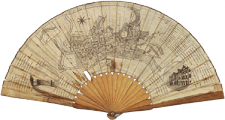Statistics
Occupations of London Women1
By P. Earle
| Occupations | Spinsters | Number Wives | Employed Widows | Total | % of Total |
|---|---|---|---|---|---|
| Domestic service | 203 | 25 | 25 | 253 | 25.2 |
| Charring/laundry | 12 | 54 | 32 | 98 | 9.7 |
| Needle trade | 51 | 86 | 50 | 187 | 18.6 |
| Nursing/medicine | 7 | 56 | 61 | 124 | 12.3 |
| Catering/victualling | 5 | 56 | 28 | 89 | 8.9 |
| Shopkeeping | 17 | 30 | 35 | 82 | 8.2 |
| Hawking/carrying | 2 | 41 | 19 | 62 | 6.2 |
| Textile manufacture | 9 | 20 | 19 | 48 | 4.8 |
| Other manufacture | 2 | 8 | 8 | 18 | 1.8 |
| Other services | 4 | 13 | 15 | 32 | 3.2 |
| Hard labour/daywork | 1 | 7 | 3 | 11 | 1.1 |
| - - - - - 313 | - - - - - 396 | - - - - - 295 | - - - - - 1004 | - - - - - 100.0 |
Source : Female employment sample.
1Earle, P., A City Full of People. Men and Women of London 1650-1750, (Methuen London Ltd., and imprint of Reed Consumer Books, Ltd), Table 4.3, p.116
In Tim Hitchcock and Robert Shoemaker, Economic Growth and Social Change in the Eighteenth-Century English Town (TLTP CDRom, Glasgow, 1998)
Occupations of married couples1
(Taken from the Old Bailey Sessions Papers. The occupations are those of the witnesses, prosecutors and prisoners appearing at felony trials at the Old Bailey.)
| Man | Wife | |
|---|---|---|
| 1. Sept. 1737 | Sells milk | hawks fruit |
| 2. July 1783 | “A lame man who cannot earn his bread”, lets lodgins (Shehan) | keeps a green shop |
| 3. Oct. 1797 | “A worker at the waterside” (dishonest) | keep a broker’s shop |
| 4. Sept. 1788 | Saloop seller (helps wife) | saloop seller in Moorfields |
| 5. Sept. 1728 | Watchman | sells cakes and gingerbread |
| 6. Sept. 1789 | Watchman | quilter |
| 7. Dec. 1744 | Chairman | sells milk |
| 8. Dec. 1766 | Chairman | keeps “a house of lodgers” and sells pease porridege and sheeps heads in her shop |
| 9. Feb. 1780 | Coal heaver | keeps a house for lodgers (apparently disreputable) |
| 10. May 1748 | Sailor (alleged) | shoplifter, says “she works at her needle” |
| 11. Jan. 1794 | Foremastman on man of war | does slop-work |
| 12. Dec. 1735 | Soldiers in the Guards | keeps a milk-cellar, “the sign of the cow” |
| 13. Jan. 1759 | Recruiting sergeant in the guards | sells old cloths (fence), used to keep a public-house |
| 14. Sep. 1798 | Soldier (made prisoner at Ostend) | keeps the Feathers public-house Broadway, Westminster |
| 15. April 1745 | Driver to a hackney coachman | takes in washing |
| 16. Sept. 1767 | Sugar baker [labourer] | takes in washing |
1George, M. D., London Life in the Eighteenth Century (Penguin, Middlesex, 1979), pp. 425-428
In Tim Hitchcock and Robert Shoemaker, Economic Growth and Social Change in the Eighteenth-Century English Town (TLTP CDRom, Glasgow, 1998)

